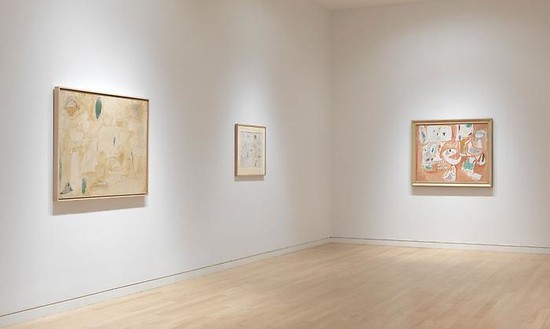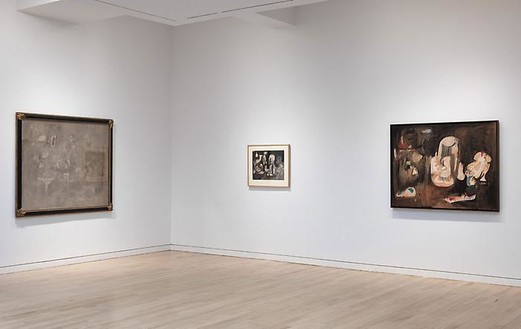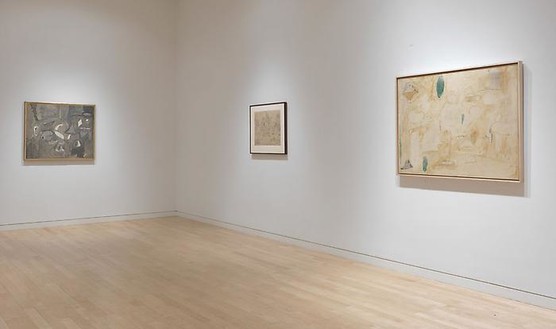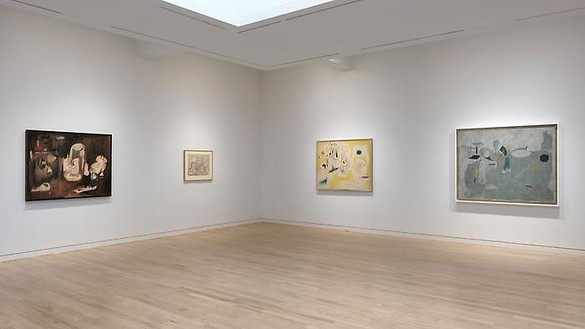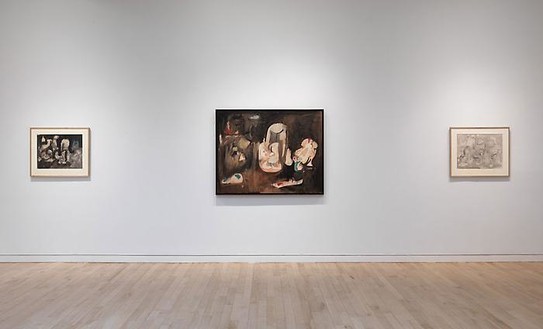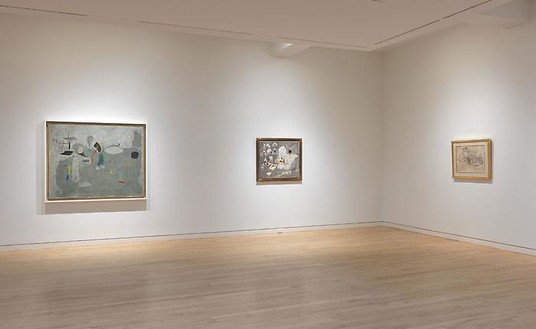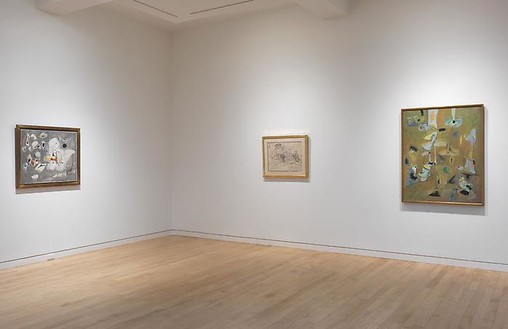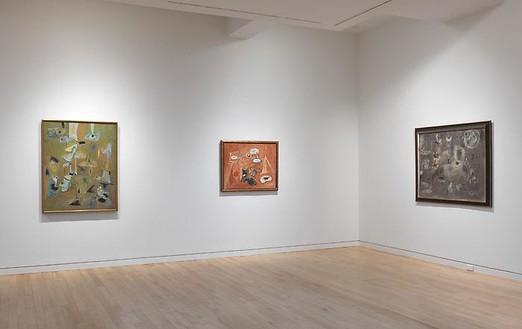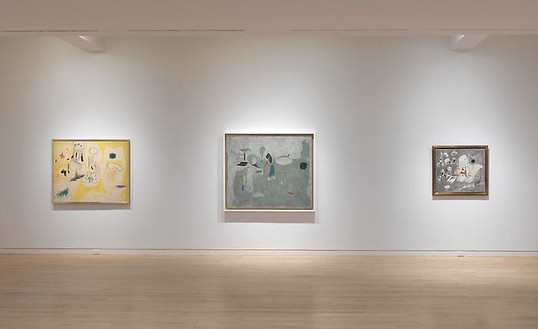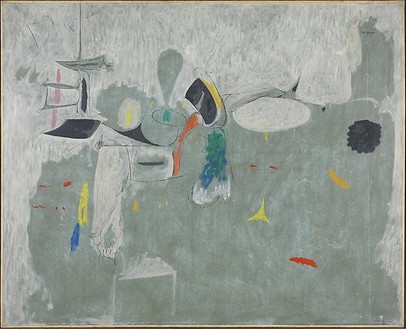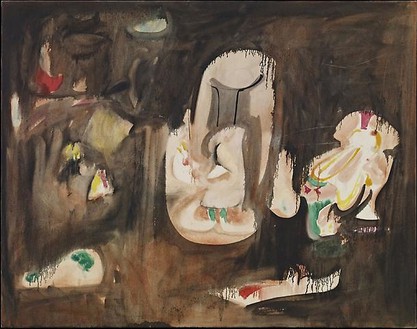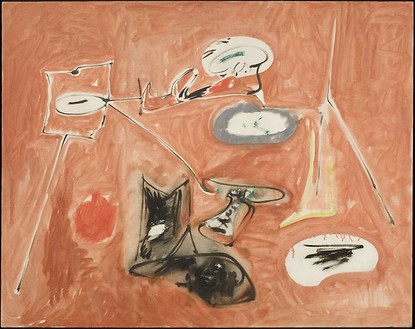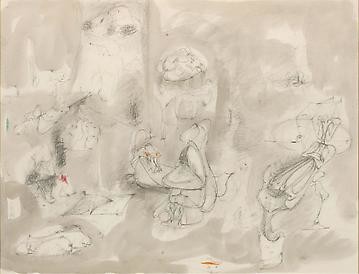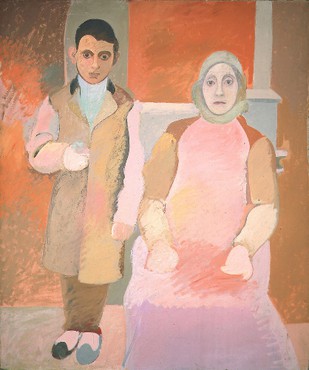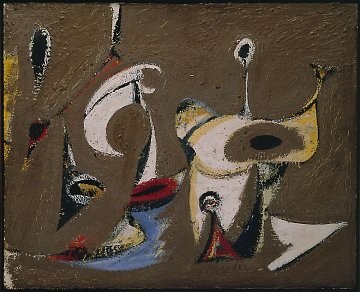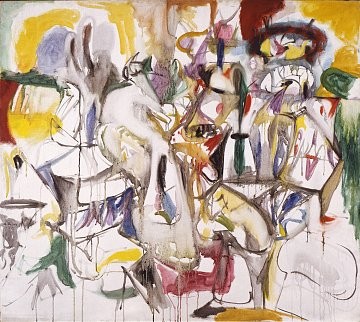About
Opening Reception: Friday, May 6th, 6-8pm
Gagosian Gallery is pleased to present an exhibition of paintings and drawings by Arshile Gorky.
Centered on the recent discovery of Untitled (Pastoral), a painting from 1947 that has never before been exhibited, “1947” includes paintings and drawings executed by the artist during the last year of his life. Untitled (Pastoral) was found in 2010 during the reframing of the painting Pastoral from the same series. The former was set behind Pastoral on the same stretcher, and remained covered for sixty-four years, thus its surface is startlingly fresh and vivid. In addition to the newly discovered painting, “1947” features a number of works drawn from international collections that have not been shown in New York for more than twenty years including The Limit, a formally audacious painting that was unveiled at Julien Levy Gallery in February 1948. Reviewing this exhibition in The Nation, Clement Greenberg commented: “Gorky at last arrives at himself and takes his place… among the very few contemporary American painters whose work is of more than national importance”. The painting was last shown in “Arshile Gorky: 1904-48, A Retrospective”, at the Solomon R. Guggenheim Museum in 1982.
In 1941, Gorky began integrating turpentine into his paints in order to loosen the structure and allow more freedom with form. This resulted in a dynamic aesthetic that moved away from the hard-edged, flat forms common to the work of the 1930s in favor of thinner lines and less saturated hues. In the late 1940s, Gorky began making forays from New York to the Virginia countryside, where he produced his “pastoral” work—an exploration of the classical Arcadian theme. Day after day, he went out into the fields, looking intently at the various flowers and grasses and working freely with pencil, pens, crayons, and watercolors. Later, he repeatedly drew the plein air drawings, integrating the ideas and lessons they contained into his formal vocabulary. He detached color from line to create discrete pictorial components; he washed the drawings in his bathtub, hung them up to dry, and scraped or sanded the surface. In this new surface experimentation the recognizable identity of an image was further altered by eliminating specific botanical or biological details.
